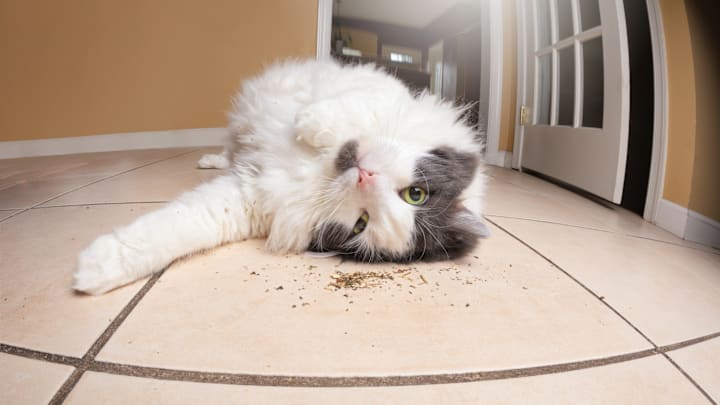If you own a cat, you’ve probably been tempted to see their reaction to catnip, the naturally growing herb that provokes a rather frenzied response, as though the cat were a stockbroker in the 1980s. Some cats even enjoy pawing, licking, or chewing the catnip before rolling around in it.
What causes the latter reaction? It may not be wholly psychoactive. Instead, the cat may be looking to take advantage of the surprising ability for catnip to act as an organic pesticide.
A new study published in the journal iScience looked at behavior involving cats pawing and crushing catnip (Nepeta cataria) and silver vine (Actinidia polygama), both known to prompt excitability in felines. N. cataria contains nepetalactone, and A. polygama contains nepetalactol and other compounds, which are all molecules that occur in plants to help stave off damage from insects. When a cat slices and dices these plants, those molecules—known as iridoids—are released, covering the cat in a plume of repellent. The iridoids are especially effective against mosquitoes.
While much of this was already known to researchers, the current study went a step further, demonstrating that cats mulching the catnip or silver vine can produce a 10-fold increase in iridoid emissions. Ferreting out the iridoids also created a longer-lasting protective effect.
Of course, the main draw for cats remains the euphoric effect, which is also due to the nepetalactone or nepetalactol. That molecule is picked up by a cat’s olfactory receptors in their nose, prompting mania. It’s not quite clear whether a cat is trying to go for more of a high in rolling around in the herbs or whether it instinctively knows it can help ward off pests, but it’s clear the kitty versions of cocaine have some wholesome advantages.
[h/t Science Alert]
